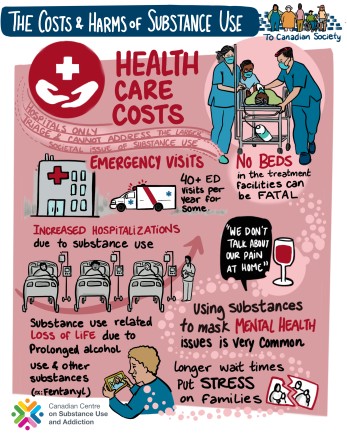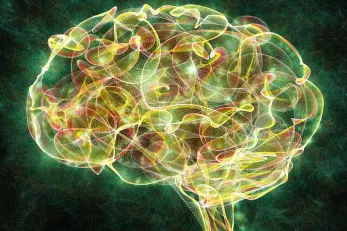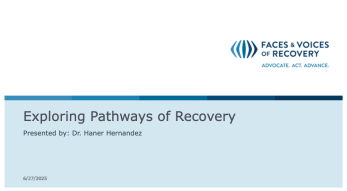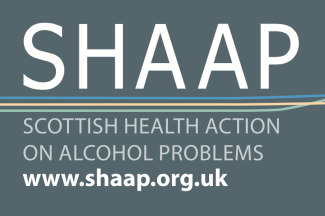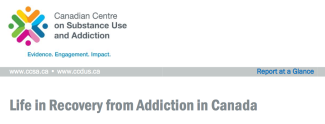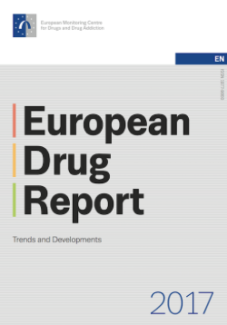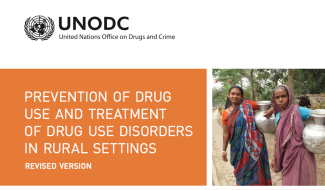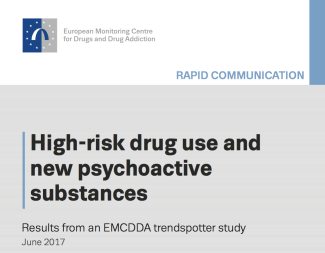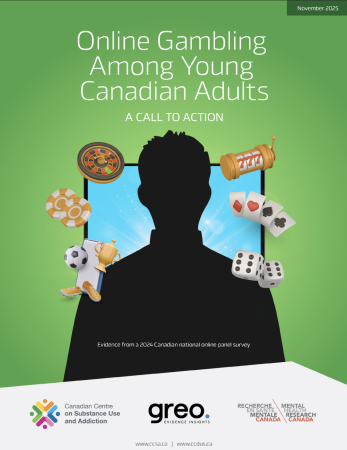
Cerca
Metodi di abbandono utilizzati dai fumatori di sigarette adulti statunitensi, 2014-2016
Astratto
Per quantificare la prevalenza di 10 metodi di abbandono comunemente usati dai fumatori di sigarette adulti, abbiamo utilizzato i dati di un sondaggio online longitudinale rappresentativo a livello nazionale (2014-2016) sui...
Alcohol Interventions in Primary Care Settings: What Works, What Doesn’t and What's Next?
This week saw the seminar launch at Edinburgh’s Royal College of Physicians of two key reports on alcohol interventions in primary care settings published by the Scottish Health Action on Alcohol Problems (SHAAP) in collaboration with the U...
Mortality Risk During and After Opioid Substitution Treatment
ABSTRACT
Objective
To compare the risk for all cause and overdose mortality in people with opioid dependence during and after substitution treatment with methadone or buprenorphine and to characterise trends in risk of mortality after...
Smoking Report: New Figures from NHS England
New figures from NHS England present the most recent smoking statistics nationwide.
The report offers a general image of smoking habits and related health issues across England.
It includes information on:
- Smoking patterns in adults...
La vita in recupero dalla dipendenza in Canada
Il Canadian Centre on Substance Use and Addiction (CCSA) ha recentemente collaborato con il National Recovery Advisory Committee per produrre il primo sondaggio canadese sulle persone in recupero dalla tossicodipendenza e / o dall'alcolismo...
European Drug Report 2017
The European Monitoring Centre for Drugs and Drug Addiction (EMCDDA) has recently released its European Drug Report for 2017. The document offers an overview of the drug situation across the continent. It covers drug supply and use as well...
Il costo sociale del disturbo da uso di eroina negli Stati Uniti
ASTRATTO
Obiettivo
Il consumo di eroina negli Stati Uniti ha raggiunto proporzioni epidemiche. L'obiettivo di questo documento è stimare il costo sociale annuale del disturbo da uso di eroina negli Stati Uniti in dollari USA 2015.
Metodi
...A Growing Issue: An Increased Number Are Entering Drug Treatment for Cannabis Use Across Europe
New research published in the journal European Addiction Research paints a picture of drug treatment services for cannabis-related problems between 2003 – 2014 across 22 European countries.
Notably, it suggests that, on the whole, during...
Effectiveness Bank Matrix Bite: Managing Coerced Alcohol Treatment
Key studies on the role of management in the treatment of problem drinking in criminal justice settings and/or to safeguard the community. Just as for practitioners, for managers the challenge is to extract therapeutic benefit out of a...
Prevention and Treatment for Drug Use in Rural Settings
The United Nations Office on Drugs and Crime (UNODC) has recently published what the organisation describes as ‘an awareness-raising tool’ aimed at policy-makers, public health officials, local authorities and other stakeholders.
Its...
Consumo di stupefacenti ad alto rischio e nuove sostanze psicoattive
"Consumo di droghe ad alto rischio e nuove sostanze psicoattive", una nuova relazione dell'Osservatorio europeo delle droghe e delle tossicodipendenze (OEDT), esamina l'emergere di forme più problematiche di consumo di nuove sostanze...
How to Implement Effective School-Based Drug Education
Trattamento per il disturbo da uso di oppioidi: cosa c'è da imparare?
Questo uso improprio di oppioidi da prescrizione è una delle principali sfide per la salute pubblica. La buprenorfina-naloxone (bup-nx) è tipicamente usata per trattare i disturbi da uso di oppioidi. Tuttavia, la sperimentazione clinica del...
Can Depression Lead to E-Cigarette Use?
There remain many unanswered questions regarding the health effects of e-cigarettes. A new study published in the journal Nicotine & Tobacco suggests that there may be a link between e-cigarette use among university students and depression...
Affluence and Academic Pressure: Two Factors That Lead to Drug Abuse?
A new study published in the journal Development and Psychopathology claims to have found a positive link between affluence, high academic performance and drug and alcohol use.
Such findings are important because it has previously only...
Un possibile nuovo trattamento per i disturbi dell'alcol?
Una nuova ricerca pubblicata sulla rivista Biological Psychiartry indica un nuovo modo per il trattamento dell'alcolismo. Ciò cercherebbe di ridurre la motivazione a bere invece di alterare gli effetti dell'alcol stesso. In effetti, lo...
How Do We Tackle the Opioid Epidemic?
The over-prescription of opioids is a significant public health issue in the United States. For example, opioids are often prescribed for minor injuries unnecessarily. This, in turn, increases the risk of addiction.
New research presented...
Ricettività agli annunci di tabacco legati alla suscettibilità al fumo tra i giovani
Esiste un forte legame tra la ricettività alla pubblicità dei prodotti del tabacco e la suscettibilità al fumo di sigarette più tardi nella vita, secondo una nuova ricerca pubblicata sulla rivista Pediatrics. In parole povere, lo studio...
Tecnologia e smettere di fumare: le e-mail personalizzate sono efficaci per gli aspiranti smettere?
Un nuovo studio dell'American Cancer Society pubblicato sulla rivista Tobacco Control suggerisce che ricevere regolarmente e-mail personalizzate con suggerimenti per smettere tra le altre informazioni potrebbe essere efficace nel ridurre il...
Excessive Drinking: More a Result of Low Socioeconomic Status Than Access to Alcohol?
Among US neighbourhoods, poverty and disorganisation, that is high levels of crime, drug trafficking and graffiti etc., may increase the risk of problem drinking, more so than the presence of bars or stores that sell alcohol.
In other...
Share the Knowledge: ISSUP members can post in the Knowledge Share – Sign in or become a member
